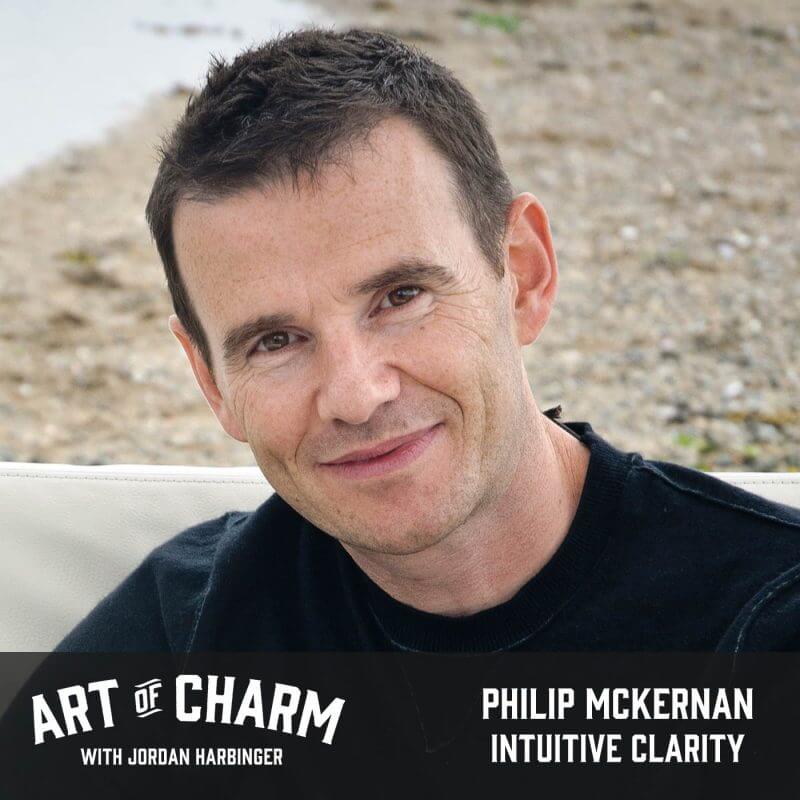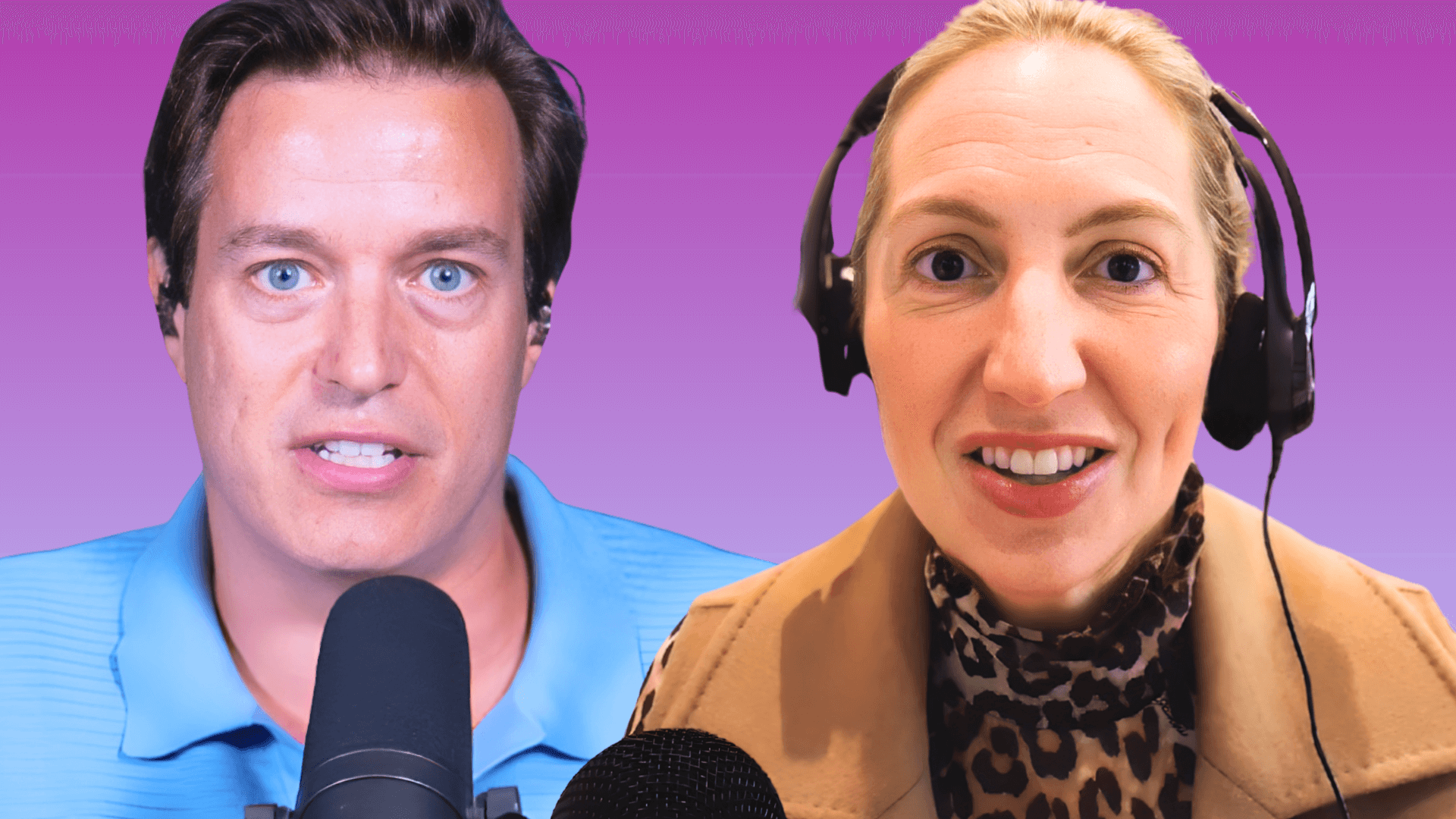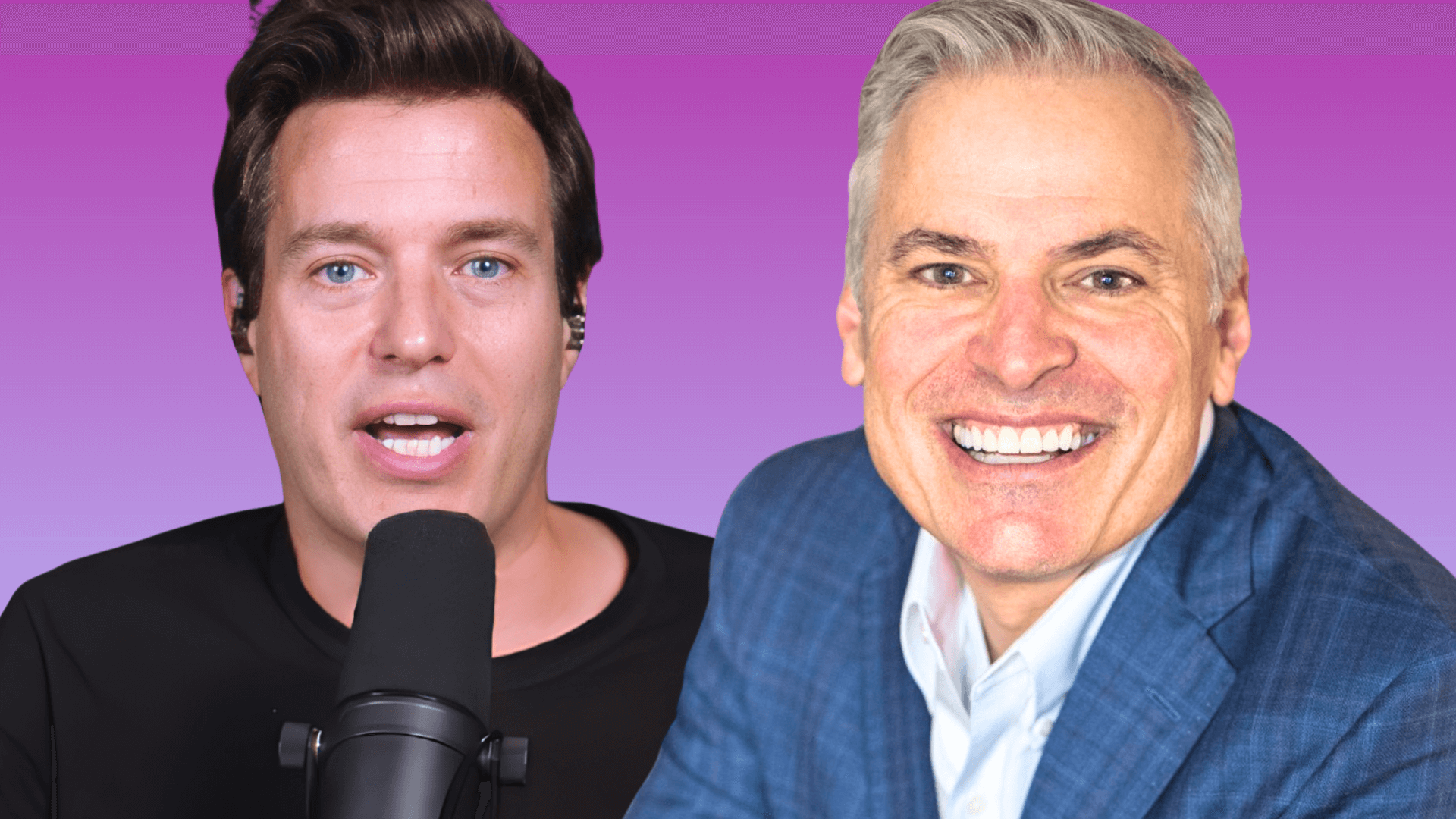Philip McKernan (@PhilipMcKernan) is like a life flow chiropractor. He helps people find or reconnect to what it is they truly love by aligning with their own intuition instead of suppressing it for the expectations of others and appeasement of a misleading mindset.
“We will literally live entire existences, build entire empires, and build entire businesses because we are seeking the validation of people around us — and most people would be in complete denial of that reality.” -Philip McKernan
The Cheat Sheet:
- If you’re not living a life you love, it’s time to have a tough conversation with yourself.
- How will an intuitive “soulset” serve you beyond the limitations of an intellectually driven (and inauthentic) mindset?
- What is intuition, and does it have a place in business?
- Why do we build webs of ever-increasing complexity around ourselves?
- It takes courage to step away from something that’s not working — but it’s almost always worth it.
- And so much more…
[aoc-subscribe]
For how many years have you put aside the things you love about life in favor of taking the “safe” road? Do you lack fulfillment in your work or personal life, but justify settling for less than you desire by counting off any endless number of reasons that ring more like hollow excuses?
On episode 495 of The Art of Charm, Philip McKernan tells us about how he put his own dreams on hold for 37 years before finally deciding to pay heed to his intuition. In the eyes of most, he’d been “successful” — a bestselling author, entrepreneur, and real estate tycoon — but internally he was unfulfilled and miserable. Now, he promotes what he calls a “soulset” that relies on the guidance of personal intuition over the goal-oriented, intellectual mindset most of us in the western world follow at our peril. Philip is the author of Rich On Paper Poor On Life: 3 Paths To More Meaning (And Money) and Dead Man Walking.
More About This Show
Philip McKernan, author of Rich On Paper Poor On Life: 3 Paths To More Meaning (And Money) and Dead Man Walking won’t tell you to follow your passion. What he will tell you is to stop doing things you’re not passionate about. Most of us — and he counts himself among us — find ourselves doing things we don’t really want to do for reasons we can’t really pinpoint. Philip says, at its core, it’s really a problem with connection.
“It’s really about connecting within ourselves,” says Philip, “within our own skin, to our story, confidence, the clarity that we often seek, and connecting to the people around us in a more meaningful, deeper way and connecting to work that (God forbid!) we could actually make money at and enjoy!”
We lose that connection when we’re bogged down with the little things that pile up over the course of a lifetime, often at the behest of others who may believe they have our best interests at heart. Our parents may urge us to go to a certain school and pursue a certain major because it will give us opportunities they never got. Our teachers may urge us to chase certain jobs after we graduate because they mistake our aptitude for doing well in class for passion about a field they love. Our bosses may urge us to take a promotion at a job we don’t really like because we put in the hours and make responsible choices — which makes the company money. Our spouses may encourage us to keep juggling it all because it pays the bills and supports the family — and we seem happy enough, don’t we?
But being happy enough isn’t quite the same as being happy or fulfilled. Only we have the intuition to sort out what we want to keep and what should get left by the wayside, but losing connection with ourselves numbs that intuition and keeps us doing things we think we should do rather than doing things we want to do.
Philip points out that we assign an urgency around so many things in the world, but we tend to put our own dreams on the backburner. He argues that we would better serve ourselves by treating what we want out of life with a similar urgency.
“I sometimes feel that we are often running from what we do want,” says Philip, “and we rarely ever get a space or a time in our life where we stop and say, ‘Okay, to Hell with what I don’t want in my life. What is it that I want for the existence that I have and the remaining years of this world?'”
His lesson isn’t one of regret, because we can still learn from whatever it is we’ve poured our time into. The hard part for most is the wakeup call that makes us put our foot down and refuse to keep on doing things we hate — but why should it get to that point?
“Therein lies the problem,” says Philip, “is that people are waiting until they hate something in order to move the needle or change the circumstances. To me, that’s not enough, because most people don’t hate what they do — they just don’t get joy from what they do. They don’t hate their lives or their [spouses] — they just don’t get a lot of joy from the relationship. They don’t hate the location they live in — they just don’t particularly like it. So they’re living in the mountains, but their soul speaks to them when they’re at the sea — and vice versa. And they go, ‘Well, I don’t hate the mountains; I just love the sea,’ and what they’re doing is, in that exact second and that exact moment, they’re denying themselves a part of nurturing that they need at the core to be happy or more fulfilled and have more meaning in their life than they’ve ever done in the past.”
We talk ourselves into staying in situations that we don’t love, but they’re not bad enough that we hate them — at least not at first. We believe the trouble involved with changing course will be too much to bear, so we stay put. We let fear of the unknown deter us from truly examining our options. It’s like the (albeit disgusting) analogy of the frog who will jump out if you try to put it in a pot of boiling water, but may stay in that pot long enough to cook if the water’s initially cool and the boil is brought up slowly and gradually over a long period of time.
Listen to this episode of The Art of Charm in its entirety to learn more about how we can better value and trust our intuition to make decisions over the easily hoodwinked intellect, why our personal happiness and sanity depend on reconnecting with our intuition, why we really build increasing webs of complexity around ourselves, and more.
THANKS, PHILIP MCKERNAN!
Resources from this episode:
- Dead Man Walking (Free download) by Philip McKernan
- Rich On Paper Poor On Life: 3 Paths To More Meaning (And Money) by Philip McKernan
You’ll also like:
- The Art of Charm Challenge (click here or text 38470 in the US)
- The Art of Charm Bootcamps
- Best of The Art of Charm Podcast
- The Art of Charm Toolbox
- The Art of Charm Toolbox for Women
- Find out more about the team who makes The Art of Charm podcast here!
On your phone? Click here to write us a well-deserved iTunes review and help us outrank the riffraff!




